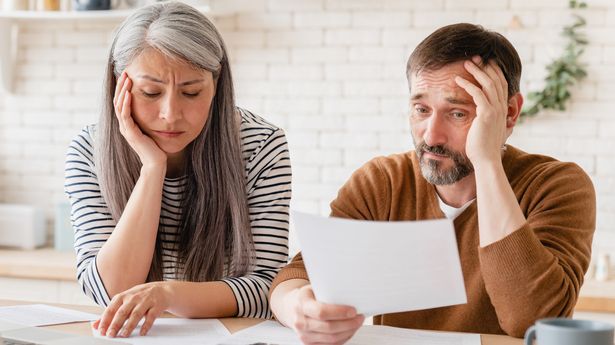A warning has been issued to the 10million Brits who are providing care for someone else as they could risk losing their state pension entitlement.
Unpaid carers have been urged to take action to make sure they don't miss out on their state pension when they are older. The warning comes from Mobilise - which is a community group for unpaid carers - who have said many carers find themselves having to reduce their work in order to provide the support.
This means they are at risk of not making enough National Insurance Contributions (NICs). According to the group, if you earn less than £242 a week, then you do not make enough to contribute to National Insurance.
Under the current rules, you need 35 qualifying years of NICs to get the full amount of the new state pension. If you have less, then you will not be eligible for the full amount. You also need to have 10 full years to get anything at all. Currently, the full new state pension is currently worth £221.20 a week or £11,541.90 a year. Mobilise warns that this could be an "unpleasant" shock to carers hoping to get the state support.
However, the group says there is a way for unpaid carers to protect their pensions and this is by claiming Carer's Credit. This “fills the gap” between caring and work. This helps ensure any years where you’re not paying national insurance because of time spent caring are still counted. Mobile say its is completely free and can be a "huge help" in building up your NICs towards the 35 year target.
To be eligible for Carer's Credit, you will need to provide care for someone for more than 20 hours but less than 35 hours a week.
If you provide care for more than 35 hours a week, you may instead be eligible for the Department for Work and Pensions (DWP) Carer’s Allowance benefit instead. This benefit pays you £4,258 a year and protects your state pensions by automatically filling the gaps in your National Insurance record.
The person you are caring for must also be claiming an eligible benefit, such as Disability Living Allowance (DLA) or Personal Independence Payments (PIP). Mobilise notes that if the person you're caring for is not receiving an eligible benefit,you can also apply for a Care Certificate, which may still allow you to make contributions to your record. Carers can check if they are eligible for Carer's Credit by using Mobilise's free online tool here.
Suzanne Bourne, a care expert at Mobilise, said that unpaid care can be an incredibly "demanding" job, and as it can affect someone's working ability, it can cause a "financial strain" for households. She said: "Few think as far ahead as their pension, but it’s vital that this issue isn’t overlooked. If you start work at 21 and stop working at 51 to care for your partner, you will only receive a partial state pension when you turn 66. This could come as a huge shock and could have been avoided with the Carer’s Credit.
“We’re encouraging everyone to check whether they are eligible as soon as possible. Carer’s Credit can be backdated to the start of the previous tax year, even if the person we were caring for no longer has care needs or has passed away. So it’s vital that you don’t leave it too long to submit your application, if you think you’re eligible.”
